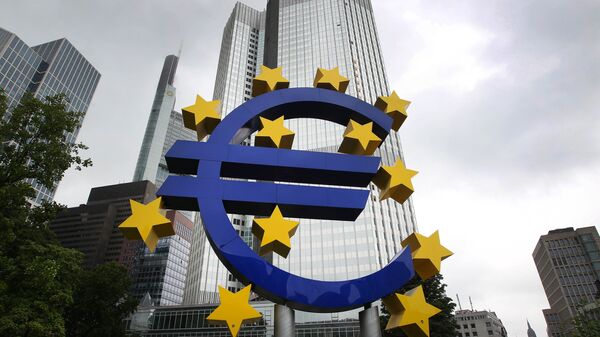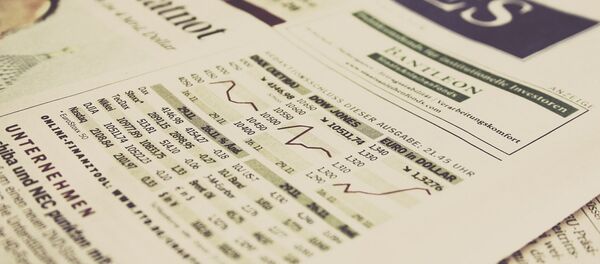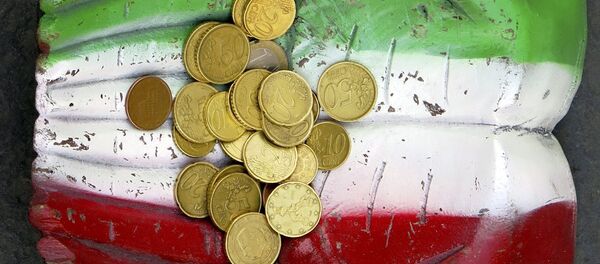Kristian Rouz — The German economy is headed for its worst GDP growth in six years, the government in Berlin said in a recent statement, stirring concerns of a possible stagnation or a recession across the entire Eurozone this year.
The report sent shockwaves across emerging markets, reversing some of the recent gains in national currencies and raising questions about the sustainability of exports from developing countries.
These readings came in after a week of rebounds in local currency FX rates across the developing world, buoyed by a report from the Chinese government that said the nation's economy had outperformed growth expectations over the past few months.
However, the subsequent news from Germany has reversed most of these gains. Germany is the main driver of the Eurozone's economy, which in turn is a major importer of commodity products from across the developing world.
READ MORE: 'Dollar Depreciation': Will Gold Replace Greenback as Global Reserve Currency?
Germany's manufacturing extended its four-month contraction in the first month of the second quarter, stirring concerns over the sustainability of the nation's exports. The country's manufacturing PMI for the month of April came in at 44.5 points, according to IHS Markit. Readings.
The last time German manufacturing PMI was in the positive territory, or above 50, was in December 2018.
These latest developments "add to worries that the (German) economy has failed to rebound with any conviction from one-off factors that dampened activity late last year", Chris Williamson of IHS Markit said.
Yet, after just a modest slowdown in the British economy last year, the UK continues to defy earlier predictions and outperform the majority of EU member states. Meanwhile, Germany's reliance on the export of manufactured goods has also exposed the EU to a new risk — a threat of trade disruptions with the US.
US President Donald Trump has promised to slap steep tariffs on EU cars and airplanes, adding to the unease in the manufacturing sector. In light of this, growth projections for the Eurozone have been revised downward by national governments and international financial institutions alike.
"The Eurozone economy will continue to grow only slightly in the first half of the year", Christoph Weil of Commerzbank said. "However, we still expect the economy to pick up again in the second half of 2019. The headwind from foreign trade should gradually ease. The latest economic data from China point to a stabilisation".
READ MORE: 20 Years of Euro: What Would Portugal Be Without the Single Currency?
Still, the Eurozone's woes have added to a range of economic and political issues facing developed nations. The widening trade deficit with India, as well as debt volatility in Malaysia and China were among the most-discussed topic among emerging market investors this past week.
The ongoing currency crises in Turkey and Argentina, as well as the new currency shock in Brazil, stemming from the government's decision to delay a vote on pension reform, have added to the concerns.
Economists say all these fears could have been offset by expectations of further growth in commodity exports from the said EM countries, but murky predictions for Eurozone expansion have put the outlook on commodity prices into question.
The International Monetary Fund (IMF) has downgraded its euro area growth outlook from 1.6 percent to 1.3 percent for 2019.
However, the European Central Bank (ECB) has attempted to ease concerns, saying despite the projected slowdown, a Eurozone recession is unlikely.
"The estimated probability of recession remains low", ECB President Mario Draghi said.
Meanwhile, some emerging markets outperformed their peers over the same period due to their solid trade relations with China and the US. The majority of experts agree that a possible US recession remains the most serious threat to economic growth in emerging markets.



